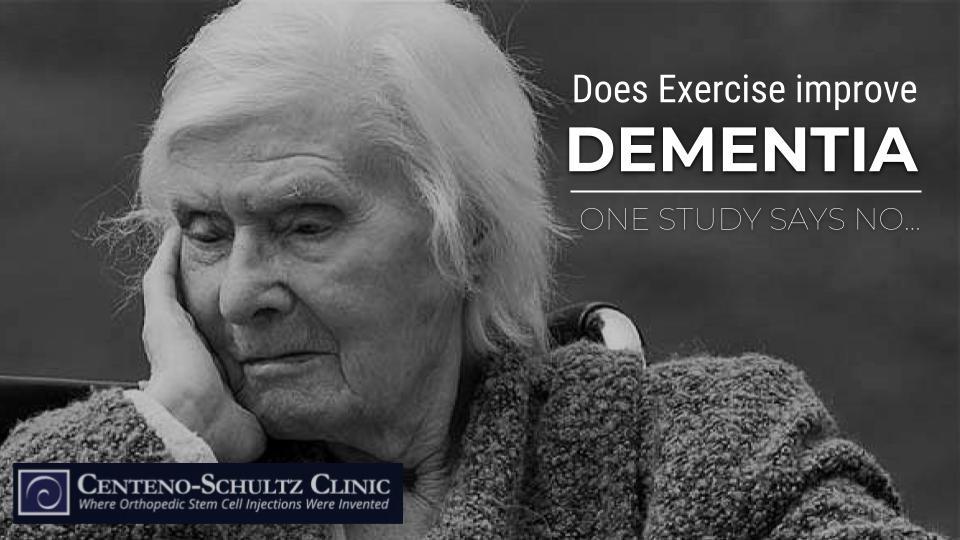One of the biggest health problems facing our industrialized society as people age is dementia. Many believe it can be warded off or at least delayed by staying active, eating right, limiting alcohol intake, and so on. But what if dementia has already set in? Can any of this help at that point?
For out next two posts, we take a look at exercise and whether or not it has any effect on dementia. We will examine the contradicting results between two separate studies on dementia, one showing exercise doesn’t help and one showing it does. One thing they both agree on, however, is that regardless of whether or not dementia is improved, these patients can still benefit from the positive physical effects of exercise.
Types of Dementia
Dementia is defined as a progressive neurodegenerative disease. As the disease progresses, brain cells, called neurons, become damaged and die. Though the degenerative process occurs slowly, the disease is irreversible and worsens over time. There are many types of dementia, including Alzheimer’s disease, dementia with Lewy bodies, vascular dementia, and so on.
What Causes Dementia?
Many studies have made genetic connections to dementia, and others have also linked environmental factors. In fact, different types of dementia have their own genetic makeup—researchers recently even discovered that Lewy body dementia (LBD) was its own dementia disease (not just part of Alzheimer’s or Parkinson’s for example) with its own genetic signature. Environmental factors included things such as drugs, chemicals, and other toxins that we might make contact with in our environment. If a person is already genetically susceptible to dementia, coming into contact with environmental toxins may create an even greater risk. A few specific links between dementia and environmental factors follow:
- One study found that general anesthesia used for surgery increased the risk of dementia, particularly in those who’d experienced postop delirium at any point in life.
- Another study also found a link between general anesthesia and dementia with up to a 60% increased risk for dementia in those who’d had general anesthesia in the past.
- Chronic pain, whether due to injury or some other cause, has also been found it increase the risk of dementia. One study found that those with chronic pain had 9% more decline in cognitive function than those without pain.
- What we eat is important for so many reasons, but in recent years, science has made some distinct links between our digestive health (particularly the microbial condition in our gut) and the brain. For example, one study suggests that dementia risks (particularly with Alzheimer’s and Parkinson’s) are increased when the gut is unhealthy.
This is just a snippet of the immeasurable numbers of environmental risks we encounter throughout life. Lowering your environmental risks is obviously a good idea, especially if you already know you carry a genetic risk for dementia. We can also throw exercise in the mix here as we choose to or not to make exercise a part of our lives, and those who proactively exercise will generally be healthier for it as they age. Today, however, we’re looking at a study on exercise in those who already have dementia. Can exercise improve the symptoms of dementia?
Does Exercise Improve Dementia?
The purpose of one recent study was to analyze the effect of exercise on dementia. Five hundred patients with dementia were randomly placed into two groups. The exercise group performed moderate- to high-intensity aerobic and strength-training exercises over a period of four months. The other group did not exercise.
Fitness levels, as would be expected, in the exercise group improved. However, similarly to the nonexercise group, dementia continued to progress in the exercise group. Interestingly, in this study, researchers found that the exercise group had a slight decline in their cognitive function when compared to the nonexercise group, though researchers didn’t determine if this was clinically relevant. Quality of life, number of falls, and so on were also similar in both groups.
So in conclusion, does exercise improve dementia? At least according to this study, exercise doesn’t seem to improve existing dementia. Be sure to tune in for our next post, however, because the next study we’ll review found quite the opposite. Stay tuned…
